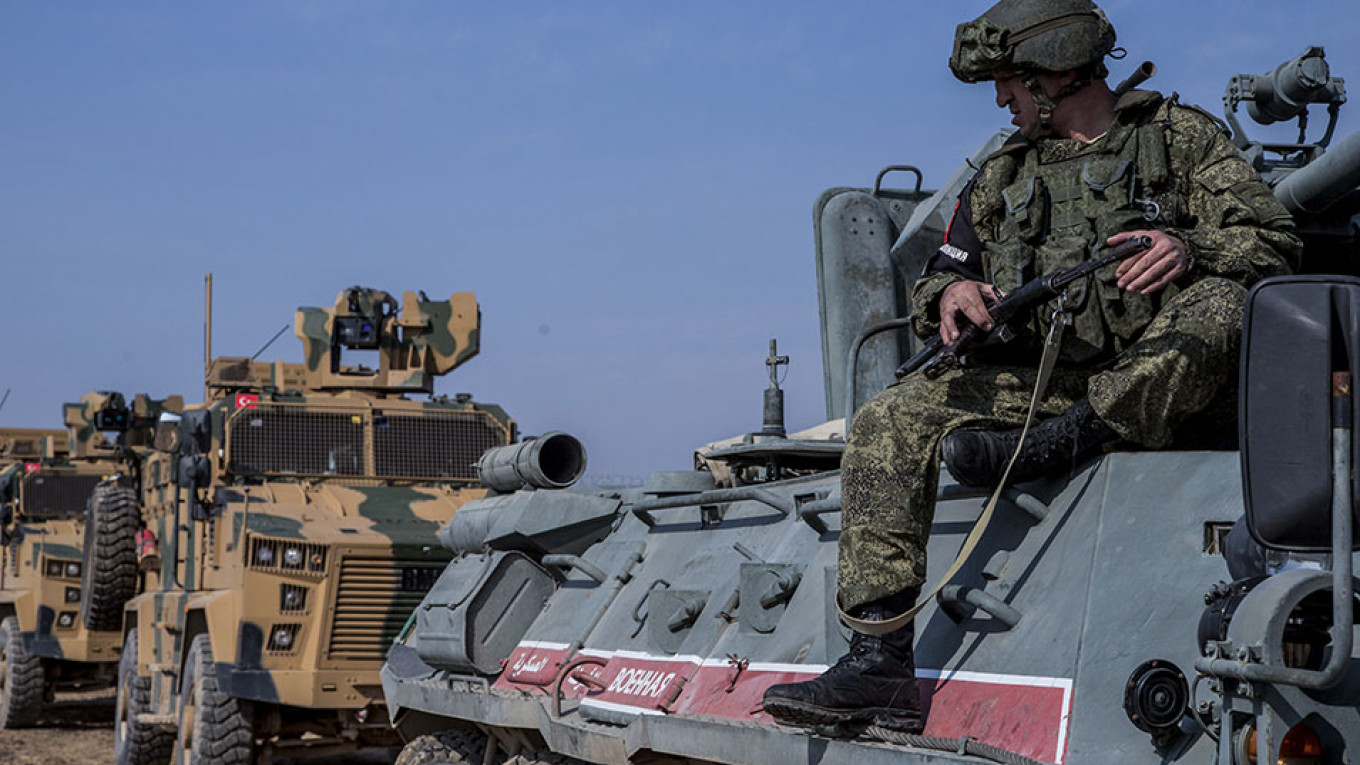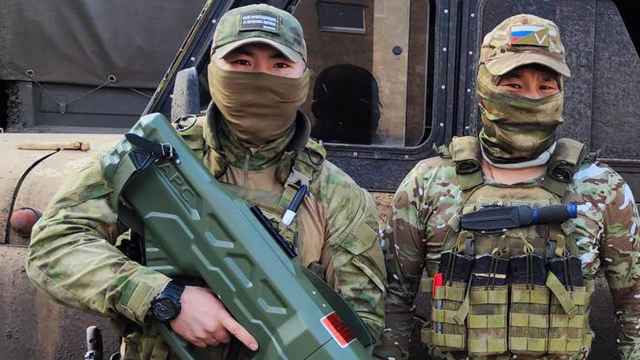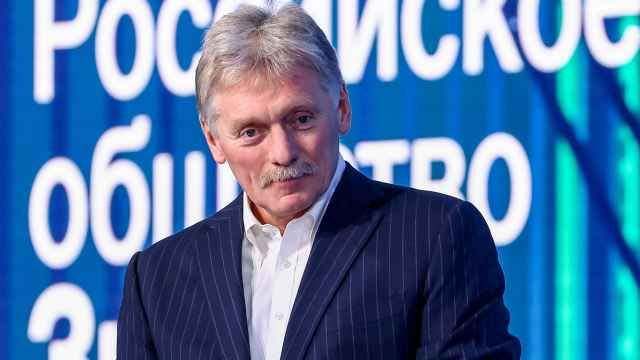Will the Moscow-Ankara alliance in Syria remain intact? This is the main question following clashes this month between the Syrian and Turkish militaries in Idlib.
The United States, meanwhile, is clearly hoping to take advantage of the situation, with Washington expressing unconditional support for Turkey — and taking up yet another opportunity to condemn Russian actions in Syria.
What happened?
Damascus intensified its offensive in Idlib in late December. When the latest ceasefire agreement between Moscow and Ankara collapsed about one month later, Turkey began deploying military equipment to the area to support Syrian opposition militias and to strengthen its own observation posts — some of which were now located on territory controlled by Damascus.
In the past 10 days, Turkish military and civilian advisors there have come under fire by Syrian artillery at least twice and casualties have been reported. In retaliation, Turkey has hit Syrian positions, leading to at least 10 times as many casualties among pro-Assad forces.
Who is to blame?
Ankara has unequivocally blamed Damascus for the escalation, though in early February, Turkish President Recep Tayyip Erdogan lay part of the blame on Russia for the first time — for giving free reign to Bashar al-Assad.
Erdogan has also leveled accusations at Iran, thereby threatening to undermine the so-called “Astana format” that includes the three countries. Until only recently, Ankara had repeatedly stated its desire to maintain that trilateral relationship.
Turkey initially played for time in hopes of reaching an understanding with Russia. Ankara hosted two rounds of talks between the two countries’ foreign ministries and security forces, but they came to nothing. Even a phone conversation between Erdogan and President Vladimir Putin did not produce a compromise.
Ankara has since essentially issued an ultimatum demanding that Syrian forces return to the positions they occupied before their offensive — that is, behind the line of Turkey’s observation posts — by the end of February. Erdogan has added that if Turkish troops or anyone else is injured as a result of further actions by Damascus, Turkey would “hit the regime forces everywhere… regardless of what was decided in the Sochi agreement.”
What is Russia’s position?
Moscow has not yet shown any desire to make concessions. It initially tried to smooth over the situation by saying that the Turkish military had failed to warn its Russian colleagues in time about any possible troop movements. Russia later shifted the blame on terrorist groups.
According to a statement made by Russia’s Foreign Ministry on Feb. 6, “the Russian and Turkish militaries made another attempt in mid-January to introduce a ceasefire in the Idlib de-escalation zone. The terrorists, however, not only did not reduce their military activity, but increased their attacks.”
Moscow’s intent has been to show that Russia and Turkey suffered equally from the escalation, because terrorist actions resulted in the deaths of not only hundreds of Syrian troops and civilians outside the de-escalation zone, but also of Turkish and Russian military experts. Moscow has maintained this position for the past week. What’s more, Russian state-controlled media reports have suggested that the escalation between the Syrian and Turkish militaries was a provocation.
What’s next?
The collapse of the “Astana format” would jeopardize the conflict settlement system in Syria that Russia has spent so much time constructing. The cooperation between the three countries involved had successfully resulted in “on the ground” compromises over the past three years, as well as at least some progress on the humanitarian and political front. No other grouping of mediators has been able to achieve anything of the sort in Syria. In fact, before the “Astana format” took shape, Russia had engaged with the U.S. to resolve issues “on the ground,” but it turned out that Washington did not have anywhere near the same level of influence over the armed opposition in Syria as Turkey.
The West believes that the actions of the “Astana format” have only strengthened the hand of Syrian President Bashar al-Assad, who has regained control of 70% of the country’s territory in the past three years.
This is generally true, but it is also true that this played out with the approval of Turkey, which, one would think, should have supported the Syrian opposition. However, Ankara’s primary interest was to create a buffer zone on the Syrian border which would prevent Kurdish militants from entering Turkish territory and provide a location — outside Assad’s control — to which Syrian refugees in Turkey could eventually return.
Although Ankara did carry out several military operations against Syrian Kurds that provided a limited foothold in the area, it is not yet big enough for refugees to return to. One solution would be to add part of Idlib to the territory. Indeed, prior to the recent hostilities, it seemed that Russia and Turkey would reach a new agreement concerning Idlib’s new borders. Ankara’s ultimatum, however, has thrown that into doubt.
Against this backdrop, Washington has clearly sided with Turkey. During a visit to Ankara, U.S. Special Representative for Syria James Jeffrey called the Russian and Syrian government forces a threat to Turkish troops. Washington has long been trying to break the Ankara-Moscow alliance in Syria, and now they have such an opportunity. The question now is whether Moscow can once again turn the situation in Syria to its favor.
A Message from The Moscow Times:
Dear readers,
We are facing unprecedented challenges. Russia's Prosecutor General's Office has designated The Moscow Times as an "undesirable" organization, criminalizing our work and putting our staff at risk of prosecution. This follows our earlier unjust labeling as a "foreign agent."
These actions are direct attempts to silence independent journalism in Russia. The authorities claim our work "discredits the decisions of the Russian leadership." We see things differently: we strive to provide accurate, unbiased reporting on Russia.
We, the journalists of The Moscow Times, refuse to be silenced. But to continue our work, we need your help.
Your support, no matter how small, makes a world of difference. If you can, please support us monthly starting from just $2. It's quick to set up, and every contribution makes a significant impact.
By supporting The Moscow Times, you're defending open, independent journalism in the face of repression. Thank you for standing with us.
Remind me later.








